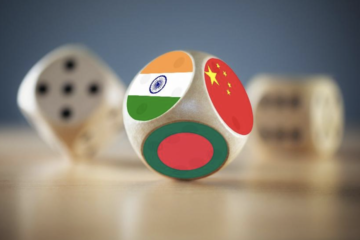Tales from North Korean defectors have for years offered small glimpses into the brutal circumstances inside Pyongyang’s prison camps. Only recently, however, for the first time in history, has the international community formally recognized these abuses at the UN level. The commission’s work this month is not likely to make headlines, as the UN effort offers few practical solutions to alleviate victims’ plight. However, the world should take note as new testimony offers a rare and an important step to giving North Koreans a voice.
The official United Nations “Commission of Inquiry” into human rights abuses in North Korea commenced in August, formally airing stories of horrific abuses that have been generally suspected, but rarely confirmed. The Commission was given a special, a one-year mandate to investigate “systematic, widespread and grave violations of human rights,” including possible crimes against humanity by the North Korean authorities. Testimony wrapped up this past Friday November 1 at the Kennedy Auditorium at Johns Hopkins University School of Advanced International Studies in Washington DC, where victims recounted their stories of abuse (often under anonymity and with the use of language translators) to a panel chaired by former Australian Justice Michael Kirby.
Comprehensive images, statistics, and other complete details about the nature and scope of abuses have, of course, been difficult to come by. Journalists have been banned from entry, risking their lives to report outside of special, “permitted” visits the regime from time to time will manufacture. One South Korean research agency estimates as many as 120,000 political prisoners have been incarcerated in North Korea since the brutal regime has taken hold, but these figures can be impossible to verify. As such, new personal testimony coming to light from this month’s UN testimony offers a rare and important window into the traditionally air-tight kingdom.
As expected, stories recounted by defectors are harrowing: a mother forced to drown her own baby, children forced to eat live rats to survive, public execution, torture, mutilation. And, among horrifying abuses brought to light, central to stories revealed during testimony this month has been the unique plight North Korean women and children face as victims of widespread torture, starvation, and violence.
One survivor, Shin Dong-hyuk, told the United Nations Commission in August that he saw a 7-year-old girl clubbed to death for “stealing a few grains of wheat.” Another North Korean defector, a woman named Jee Heon-a, testified that women in particular have been brutalized and sexually exploited, some suffering forced miscarriages through beatings “and other forms of torture” from guards at detention facilities. In another harrowing example of the brutality, she recounted a gruesome tale in which a woman was forced to drown her own baby while her family watched. Another, described her youth as defined by malnutrition and starvation, leading to the loss of two younger brothers and her grandmother.
One UN representative, Ms Sonja Biserko, has highlighted the plight of North Korean women as testimony came to a close, saying, “Women are really at the centre of all the testimony that has been presented to us…They are the victims of the worst abuses: in detention, when they are tortured, sexually assaulted and raped; when they fend for their families suffering the effects of food shortages; by taking the dangerous routes to illegally cross into China to find ways to feed their children”.
While there remain few viable options for international action to help prevent rampant human rights abuse in North Korea, the commission’s findings concluding this week offer a unique view into the so-called “hermit kingdom,” and should not be ignored. Still, the commission primarily offers to highlight, rather than address abuses. The real challenge will be moving beyond this inquiry stage and toward action to alleviate North Koreans’ suffering.
There is hope, however, that increasing the platform for North Koreans to air their stories will help pressure the regime to ease its abuses. Despite the North Korean regime’s painstaking efforts to maintain an air-tight grip on brutal tactics and ban its citizens from exiting the country, those testifying are a few of the handful of defectors who have escaped, most through North-Eastern provinces in bordering China. A number of these survivors have already been able to publicly broadcast their stories to a fairly wide international audience (including this famous TED Talk by young female defector Hyeonseo Lee).
The UN effort wrapping up this month is a rare and important new platform to help amplify the voices of those who have escaped. New testimony may help establish more credible and comprehensive figures on the nature and scope of these abuses. Turning this into real solutions to alleviate North Koreans’ suffering will, of course, be the real challenge ahead. But it took the UN far too long to recognize the North Koreans’ plight in this symbolic manner, and highlighting recent testimony and listening to their accounts is a good start.


